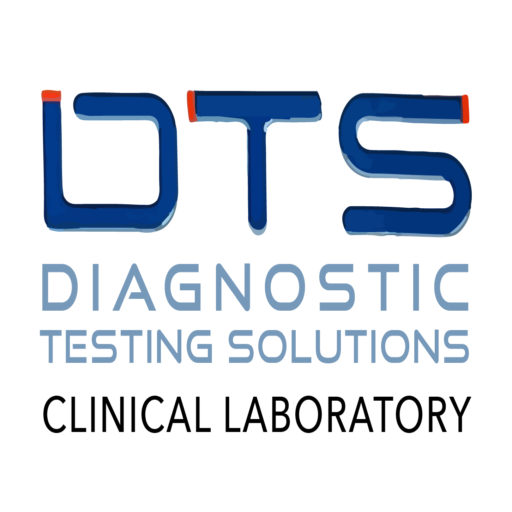
Maintaining good health requires more than just eating well and exercising regularly. To truly understand your body’s condition, it’s essential to undergo regular health screenings. One of the most comprehensive ways to do this is by scheduling a general health panel blood test annually. This type of test provides detailed information about various aspects of your health, helping you take control of your well-being.
Understanding a General Health Panel
A general health panel is a comprehensive set of blood tests that provides valuable insights into various aspects of health. These tests help assess everything from cholesterol levels to kidney function, offering a detailed snapshot of overall health.
What Is a General Health Panel Test?
A general health panel test is a routine examination that involves a series of blood tests designed to evaluate your body’s vital functions. It typically includes tests like a Complete Blood Count (CBC), lipid panel, liver function tests, and more. These tests can detect potential health issues early on, even before symptoms appear, allowing for timely intervention and treatment.
Common Tests Included in a General Health Panel
A general health panel usually includes:
- Complete Blood Count (CBC): Measures different components of your blood, such as red and white blood cells, hemoglobin, and platelets.
- Lipid Panel: Assesses your cholesterol levels, including LDL (bad cholesterol), HDL (good cholesterol), and triglycerides.
- Liver Function Tests evaluate the health of your liver by measuring the enzymes, proteins, and substances produced by the liver.
- Kidney Function Tests: Tests like Blood Urea Nitrogen (BUN) and creatinine levels to assess kidney function.
- Glucose Test: Measures your blood sugar levels, which is crucial for detecting diabetes.
These tests offer a comprehensive overview of your health, enabling your healthcare provider to identify any abnormalities or potential health risks.
Who Should Get a General Health Panel?
While anyone can benefit from a general health panel, certain groups are particularly encouraged to undergo this testing regularly:
- Adults over 40: As we age, the risk of developing chronic conditions like heart disease and diabetes increases, making regular testing essential.
- People with a family history of chronic diseases: If you have a family history of conditions such as heart disease, diabetes, or cancer, regular testing is vital for early detection.
- Individuals with existing health conditions: If you already have a chronic condition like hypertension or diabetes, regular testing helps monitor the effectiveness of your treatment plan.
Benefits of Annual General Health Panel Tests
Scheduling an annual general health panel test offers numerous benefits that can significantly impact your long-term health.
Early Detection of Diseases
One of the most significant advantages of regular testing is the benefits of early detection through testing. Many conditions, such as high cholesterol, diabetes, and liver disease, can develop silently without noticeable symptoms. By identifying these issues early, you can take proactive steps to manage them, reducing the risk of complications.
For example, detecting high cholesterol levels early allows you to make dietary changes, increase physical activity, or start medication to lower your risk of heart disease. Similarly, early detection of elevated blood sugar levels can prompt lifestyle changes or medication to prevent the onset of type 2 diabetes.
Monitoring Chronic Conditions
Suppose you already have a chronic condition like diabetes, hypertension, or kidney disease. In that case, annual health panel tests are crucial for monitoring your condition. Regular testing allows your healthcare provider to track how well your condition is being managed and make necessary adjustments to your treatment plan.
For instance, if your blood sugar levels are consistently high despite medication, your doctor may recommend a change in medication or an adjustment to your diet and exercise regimen. Continuous monitoring ensures that your treatment plan is effective and that you are minimizing the risk of complications.
Assessing Overall Health and Wellness
Even if you feel healthy, an annual general health panel provides valuable information about your overall well-being. It helps identify any potential health risks and gives you a clear understanding of your body’s current state.
For example, a normal result from your tests can provide peace of mind, confirming that your current lifestyle is contributing positively to your health. On the other hand, if the results show areas of concern, you can take proactive steps to address these issues before they become serious.
How Often Should You Schedule a General Health Panel?
While the idea of frequent health testing might seem overwhelming, understanding the appropriate frequency can help you stay on top of your health without unnecessary stress.
Why Annually?
Annual testing is recommended because it strikes a balance between frequent monitoring and practicality. By undergoing a general health panel test once a year, you can track changes in your health over time, catch any emerging issues early, and maintain a proactive approach to your well-being.
For example, changes in cholesterol levels or blood sugar can occur gradually over time. Annual testing allows your healthcare provider to spot these trends and intervene before they develop into more severe health problems.
Factors Influencing Testing Frequency
While annual testing is the standard recommendation, certain factors may necessitate more frequent testing. These include:
- Age: Older adults may need more frequent testing due to the higher risk of chronic conditions.
- Family History: If you have a strong family history of certain diseases, your doctor may recommend more frequent testing.
- Existing Health Conditions: If you have a chronic condition like diabetes or high blood pressure, more frequent testing may be necessary to monitor your health effectively.
Consulting with your healthcare provider can help determine the most appropriate testing schedule based on your individual health needs.
What to Expect During a General Health Panel Test
Understanding the testing process can help ease any anxiety you may have about undergoing a general health panel.
Preparing for the Test
Preparation for a general health panel is usually straightforward, but there are a few important steps to follow:
- Fasting: Many health panel tests, particularly glucose and lipid panels, require fasting. It typically means not eating or drinking anything except water for 8-12 hours before the test.
- Medication Adjustments: If you’re taking medication, ask your doctor if you need to adjust your dosage before the test. Some medications can affect test results.
- Hydration: Drink plenty of water before the test to make the blood draw easier.
Following these guidelines will help ensure that your test results are accurate.
The Testing Procedure
The procedure for a general health panel test is simple and usually quick:
- Blood Draw: A healthcare professional will draw a small amount of blood from a vein, usually in your arm. The process typically takes just a few minutes.
- Sample Analysis: Your blood sample will be sent to a lab where it will be analyzed. The lab will measure various levels, such as cholesterol, glucose, and blood cell counts.
How Long Does It Take?
The actual blood draw only takes a few minutes. However, the time it takes to receive your results can vary. In most cases, results are available within a few days to a week. Your healthcare provider will typically review the results with you and discuss any necessary follow-up actions.
Understanding Your General Health Panel Results
Interpreting your general health panel results can be confusing if you’re unfamiliar with the terminology and reference ranges. Here’s a guide to help you understand your results.
What Do the Numbers Mean?
Your test results will include various readings that fall within a reference range. This range represents the typical values seen in healthy individuals. Results outside of this range may indicate a health issue that requires further investigation.
For example:
- Cholesterol Levels
- LDL (Low-Density Lipoprotein): Ideally below 100 mg/dL. Higher levels may indicate an increased risk of heart disease.
- HDL (High-Density Lipoprotein): Ideally above 60 mg/dL. Higher levels are protective against heart disease.
- Blood Sugar (Glucose): Normal fasting glucose levels range from 70 to 99 mg/dL. Levels above this may indicate prediabetes or diabetes.
- Liver Enzymes (ALT, AST): Elevated levels can indicate liver damage or disease.
When to Consult a Doctor
If any of your test results fall outside the normal range, it’s important to consult your healthcare provider. Abnormal results don’t always mean you have a disease, but they do indicate that further investigation may be necessary.
For example, slightly elevated liver enzymes might be due to a temporary condition, such as taking certain medications, or it could indicate a more serious issue like liver disease. Your doctor will help determine the cause and recommend appropriate follow-up steps.
Taking Action Based on Results
Based on your results, your healthcare provider may recommend lifestyle changes, medications, or further testing. For example:
- Lifestyle Changes: If your cholesterol levels are high, your doctor might suggest dietary changes, increasing physical activity, or quitting smoking.
- Medications: If you’re diagnosed with a condition like high blood pressure or diabetes, medication might be necessary to manage it.
- Follow-Up Tests: If certain results are abnormal, your doctor might recommend additional tests to get a more detailed understanding of your condition.
The Role of Health Insurance in General Health Panels
Understanding how your health insurance covers general health panel tests can help you avoid unexpected costs.
Does Insurance cover General Health Panels?
Under the Affordable Care Act (ACA), many health insurance plans in the U.S. cover preventive services, including general health panel tests. However, the extent of coverage can vary depending on your insurance provider and plan.
For instance, most insurance plans will cover a general health panel as part of your annual physical exam without requiring a copayment. However, specific tests included in the panel might require additional coverage or out-of-pocket costs, especially if they are considered diagnostic rather than preventive.
Maximizing Your Insurance Benefits
To ensure that you maximize your insurance benefits:
- Check Coverage: Before scheduling your test, confirm with your insurance provider what is covered.
- Choose In-Network Providers: Using a lab or healthcare provider within your insurance network can reduce your costs.
- Request a Breakdown: Ask your healthcare provider for a detailed breakdown of the tests they plan to order and verify coverage for each one.
Choosing the Right Healthcare Provider for Your General Health Panel
Selecting the right healthcare provider is crucial for ensuring that your general health panel test is accurate and comprehensive.
Finding a Reputable Lab or Clinic
When choosing a lab or clinic for your general health panel test, consider the following:
- Reputation: Look for labs or clinics with a strong reputation for accuracy and reliability. Reading online reviews and asking for recommendations can help.
- Accreditation: Ensure that the lab is accredited by recognized organizations, such as the College of American Pathologists (CAP), which ensures high standards of quality.
- Convenience: Consider factors like location, hours of operation, and whether the lab accepts walk-ins or requires appointments.
Questions to Ask Your Provider
Before undergoing the test, ask your healthcare provider the following questions:
- What tests are included? Make sure you understand which tests will be performed and why.
- How should I prepare? Confirm any fasting requirements or medication adjustments needed before the test.
- What are the next steps? Ask about how and when you’ll receive your results and what to do if they are abnormal.
Online vs. In-Person Testing
With the rise of telemedicine, some people opt for at-home testing kits that can be ordered online. While these kits offer convenience, they may not be as comprehensive or accurate as tests performed in a clinical setting.
- Online Testing: Offers convenience and privacy but may have limitations in terms of the range of tests available and the accuracy of results.
- In-Person Testing: Typically more reliable and comprehensive, with the added benefit of immediate access to healthcare professionals for any follow-up questions or concerns.
Common Myths About General Health Panels
Despite the clear benefits of annual general health panel tests, several myths and misconceptions persist. Let’s debunk some of the most common ones.
I’m Healthy, I Don’t Need a Test
One of the most pervasive myths is that only people who feel unwell need to get tested. In reality, many serious health conditions, such as high cholesterol or diabetes, can develop without any noticeable symptoms.
By the time symptoms appear, the condition may be more advanced and harder to treat. Regular testing allows you to detect these issues early when they are most treatable.
These Tests Are Only for Older Adults
Another common misconception is that general health panels are only necessary for older adults. While age does increase the risk of certain health conditions, young and middle-aged adults can also benefit from regular testing. The tests included in a general health panel are not limited to older adults but are designed to assess key health markers that are important for individuals of all ages.
For example, conditions like high cholesterol and prediabetes are becoming increasingly common in younger populations due to factors like poor diet and lack of exercise. Early detection in younger individuals can lead to lifestyle changes that prevent these conditions from worsening.
Annual Testing is Unnecessary
Some people believe that annual testing is excessive and that less frequent testing is sufficient. However, health can change rapidly within a year, especially with the onset of new conditions or changes in lifestyle.
Annual testing provides a consistent baseline, allowing for the early detection of changes that could indicate the development of a serious condition.
Conclusion
Annual general health panel tests are powerful tools for maintaining health and well-being. They provide a comprehensive overview of your body’s current state, allowing you to detect potential issues early and take proactive steps to address them.
By scheduling a general health panel test every year, you are taking an important step in managing your health and preventing serious conditions from developing. Whether you’re in perfect health or managing a chronic condition, regular testing is a key component of a proactive health strategy.
FAQ’s
How Accurate Are These Tests?
General health panel tests are highly accurate when performed in a certified lab by trained professionals. However, accuracy can be affected by factors like improper fasting, medication, or dehydration. Following your healthcare provider’s instructions carefully will help ensure the most accurate results.
Can I Eat Before the Test?
Some tests in a general health panel, like the glucose test or lipid panel, require fasting. It means you should not eat or drink anything except water for 8-12 hours before the test. Eating before these tests can lead to inaccurate results, so it’s important to follow fasting instructions.
What If My Results Are Normal?
Even if all your test results are within the normal range, it’s still important to continue annual testing. Normal results indicate that your current lifestyle and health management strategies are working. Still, annual testing ensures that you catch any changes in your health early.
How Can I Lower My Risk Factors Before Testing?
To improve your test results, focus on maintaining a healthy lifestyle:
- Diet: Eat a balanced diet rich in fruits, vegetables, whole grains, and lean proteins.
- Exercise: Aim for at least 150 minutes of moderate-intensity exercise per week.
- Avoid Smoking and Limit Alcohol: These habits can significantly impact your health and test results.
- Manage Stress: Chronic stress can affect your blood pressure and overall health, so it’s important to find healthy ways to manage stress.
What Happens If I Skip a Year?
Skipping a year of testing can increase the risk of undetected health issues. Conditions like high cholesterol or elevated blood sugar can worsen over time without symptoms, leading to complications that might have been prevented with early detection.
How Do I Schedule a General Health Panel?
Scheduling a general health panel is simple. You can:
- Contact Your Primary Care Physician: They can order the tests as part of your annual physical.
- Visit a Local Clinic or Lab: Many offer walk-in appointments for general health panels.
- Use an Online Service: If you prefer the convenience of at-home testing, some services allow you to order tests online and visit a local lab for the blood draw.






